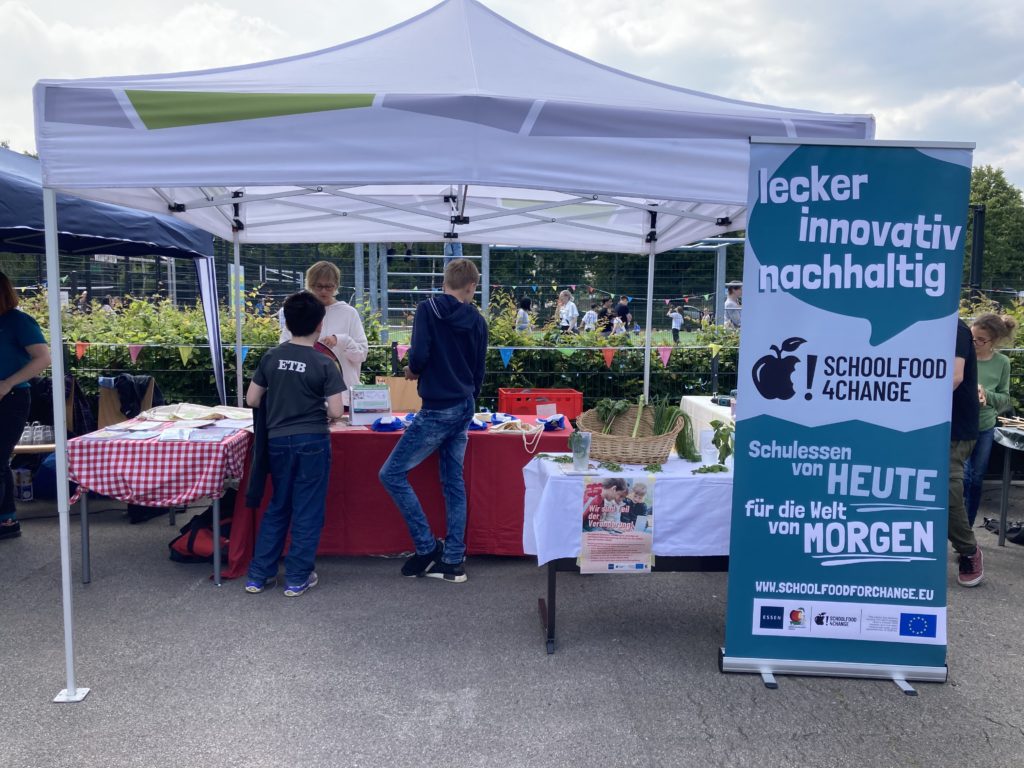School meals can help reduce social inequality, create a better awareness of environmentally friendly consumption, and improve health benefits for children. On the other hand, nutritional knowledge (“food literacy”) helps us decide which ingredients are good for us and makes us aware of the impact our diet has on the environment. To support schools in equipping their pupils with this knowledge, the SchoolFood4Change team has developed a Guide highlighting how to organise so-called Canteen Day Parties at schools.
As the Guide notes, Canteen Days are events promoting health education and sustainable consumption, the central role of families as promoters of health and nutrition, actions that can be replicated at home on a daily basis, and exchange with local food producers and other relevant stakeholders.
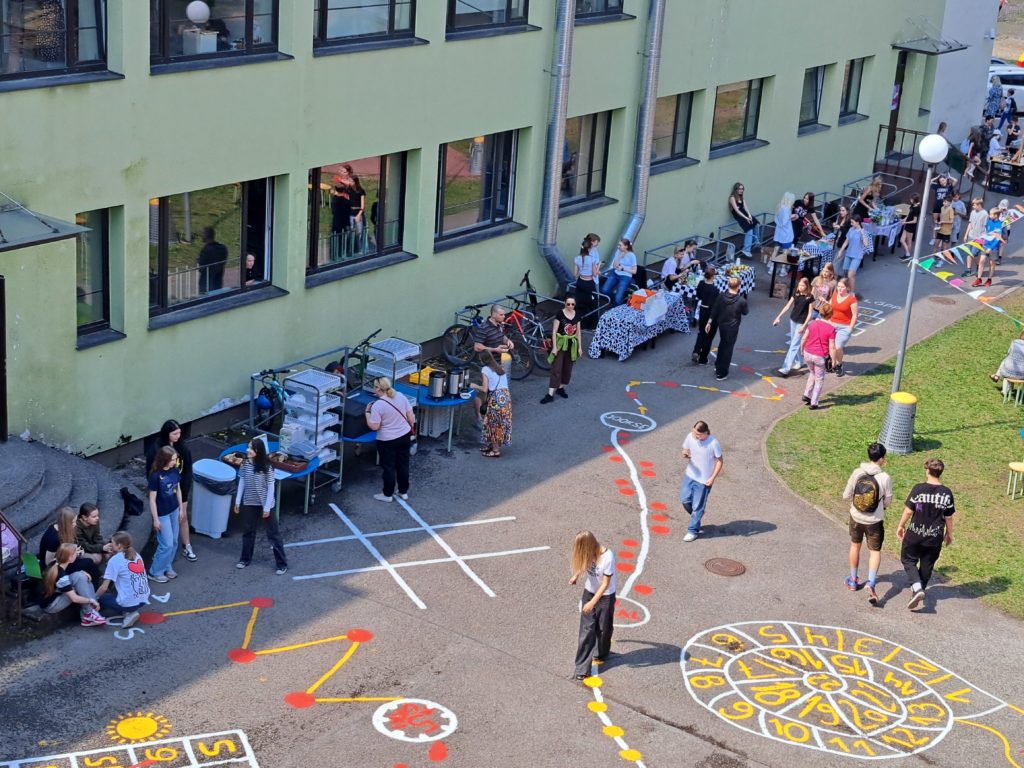
Canteen Days bring together students, their families, teachers, school staff and the general public in activities that center around sustainable and healthy food. They can be organised at a school or at any other public space that is easily accessible.
The Canteen Day Parties that took place in Spain (read more here) and Germany (read more here) created a vibrant atmosphere where children, parents and other local residents could get together in a festive atmosphere to learn more about how schools can promote sustainability and nutrition in practice.
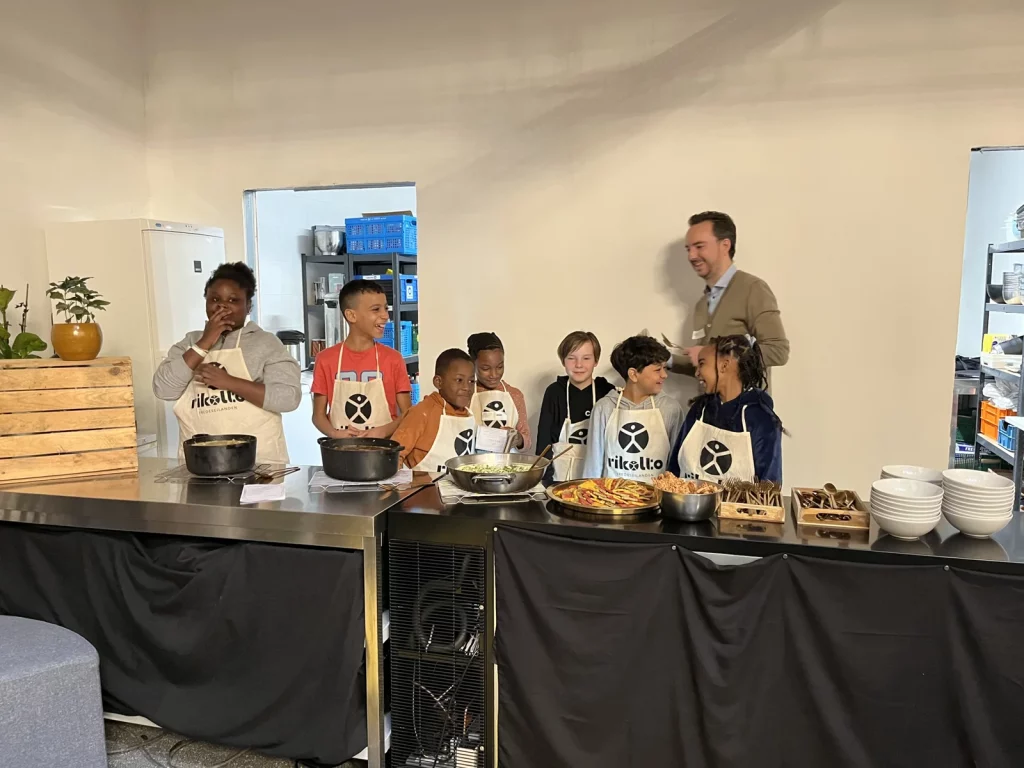
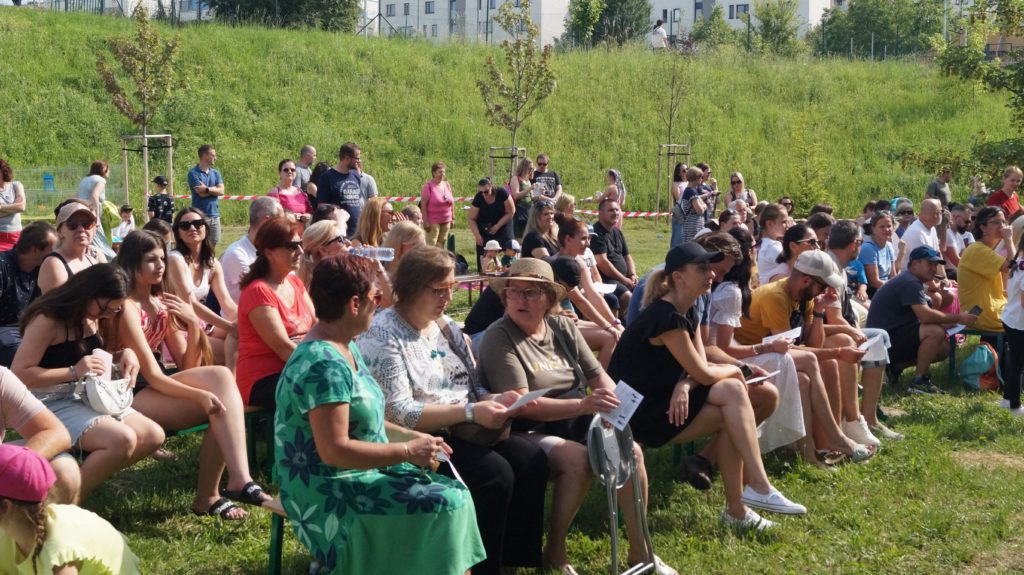
So, how to organise a Canteen Day party?
The SchoolFood4Change Canteen Day Guide highlights activities that can be organised as part of a Canteen Day and explains how these actions can be prepared and designed. The Guide suggests key points to run the communication around such an event, measures and steps needed for smooth facilitation, and methodologies for assessing the success of the event afterwards.
An example of such an activity is “Taste Food For Change”, a workshop for pupils that allows them to gain a better understanding of healthy, sustainable dishes from different countries. Each pupil chooses an ethnic dish and provides a presentation on the country represented by it and its food habits. Other activities may include preparing tasty meals together, meeting the cook of a canteen and learning from their work, a pupil-guided tour on food education, or even CanteenDay-Bingo.
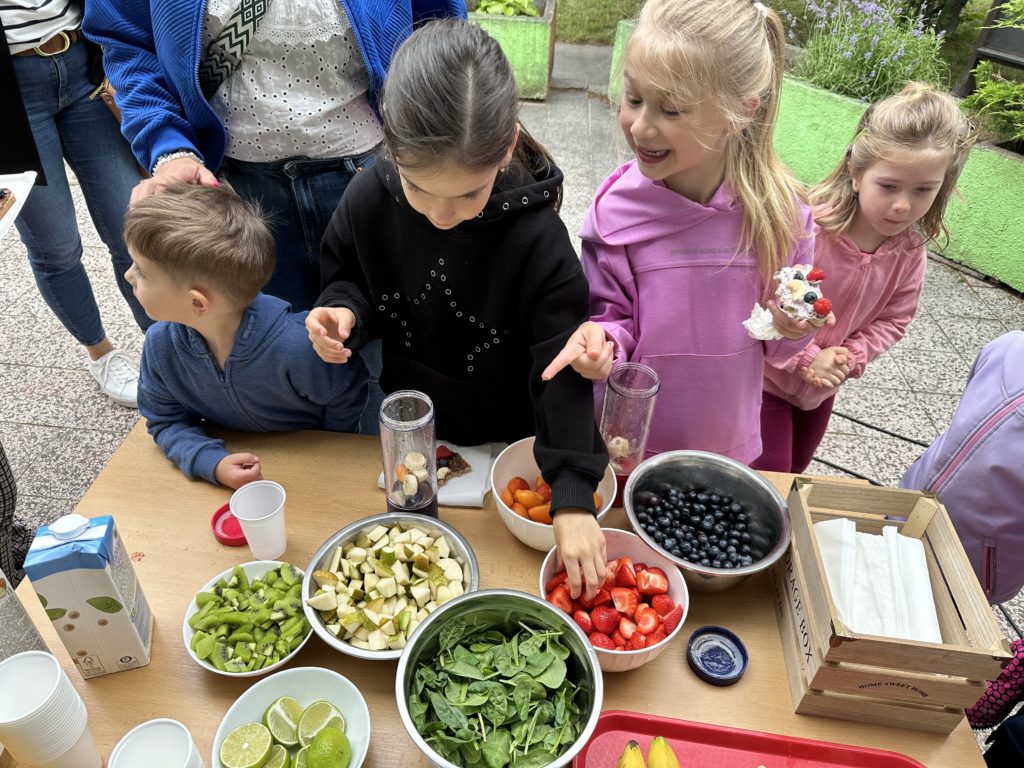
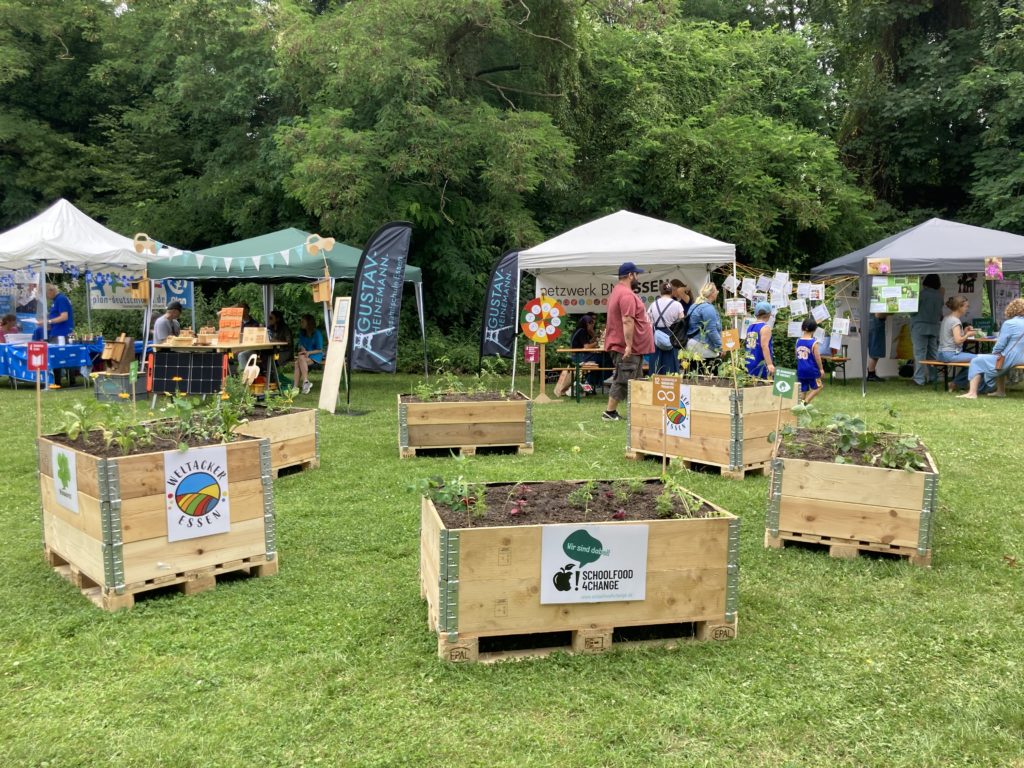
The Guide notes that to prepare any of these activities, organisers need to start first with a context analysis where they define the guests and participants of their Canteen Day, the theme to be explored and the key objectives of the activity. This analysis should be followed by the planning consisting of three “macro-phases”: reception/warm-up, core/central phase and final concluding phase. The Guide offers tips, suggestions and practical examples of how to approach each of these phases.
The SchoolFood4Change Canteen Day Guide can be downloaded here.
